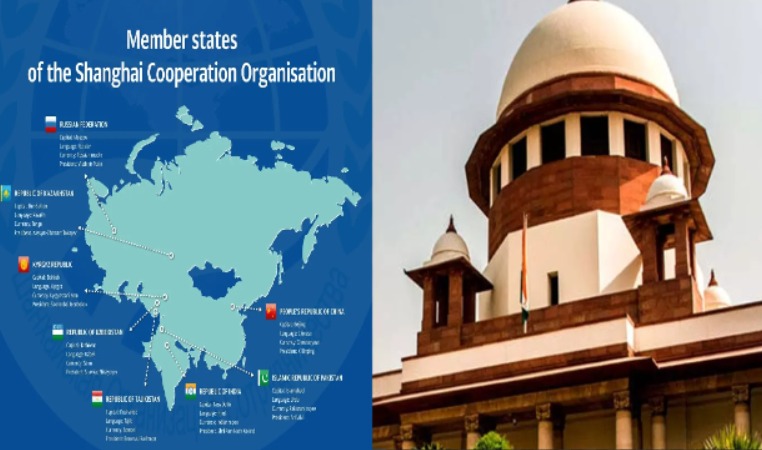
The Supreme Court of India will host the 18th meeting of the Chief Justices of the Member States of the Shanghai Cooperation Organization (SCO) starting from March 10 till March 12.
The main aim of the SCO meeting was to achieve the goal of developing judicial cooperation among Member States.
The Chief Justice of India, Dr. Dhananjay Y. Chandrachud, as well as Justice Sanjay Kishan Kaul and Justice K. M. Joseph of the Supreme Court will be among the Indian representatives at the meeting.
Discussions about “smart Courts and the future of the judiciary,” “facilitating access to justice,” and “institutional difficulties facing the court: delays, infrastructure, representation, and transparency” are among the subjects that are anticipated to come up at the meeting.
A joint statement will be signed at the end of the meeting, which will also feature participation from the Chief Justices, Chairpersons, and Judges of the Member and Observer States as well as members from the SCO Secretariat and SCO RATS (Regional Anti-Terrorism Structure).
Background
On the basis of the “Shanghai five,” which were founded following the signing by Tajikistan, China, Kazakhstan, Kyrgyzstan, and Russia, the Shanghai Cooperation Organization (SCO) was established in 2001.
The prime objective of the SCO is to increase the member states’ ability to work effectively together in a variety of areas, strengthening their friendships, trust, and good neighbourliness. China, India, Kazakhstan, Kyrgyzstan, Pakistan, Russia, Tajikistan, and Uzbekistan are SCO members, along with Tajikistan. Armenia, Azerbaijan, Cambodia, and Nepal are SCO conversation partners, whereas Afghanistan, Belarus, Iran, and Mongolia are SCO observers.
As SCO discussion partners, Armenia, Azerbaijan, Cambodia, and Nepal are included, while Afghanistan, Belarus, Iran, and Mongolia are SCO observers:
On 22nd September,2006, the inaugural meeting took place in Shanghai (People’s Republic of China). At Dushanbe, there occurred the seventeenth gathering of the presidents of the SCO member states’ supreme courts. By signing the Samarkand declaration last year, India was given a one-year rotating presidency of the Shanghai Cooperation Organization.




